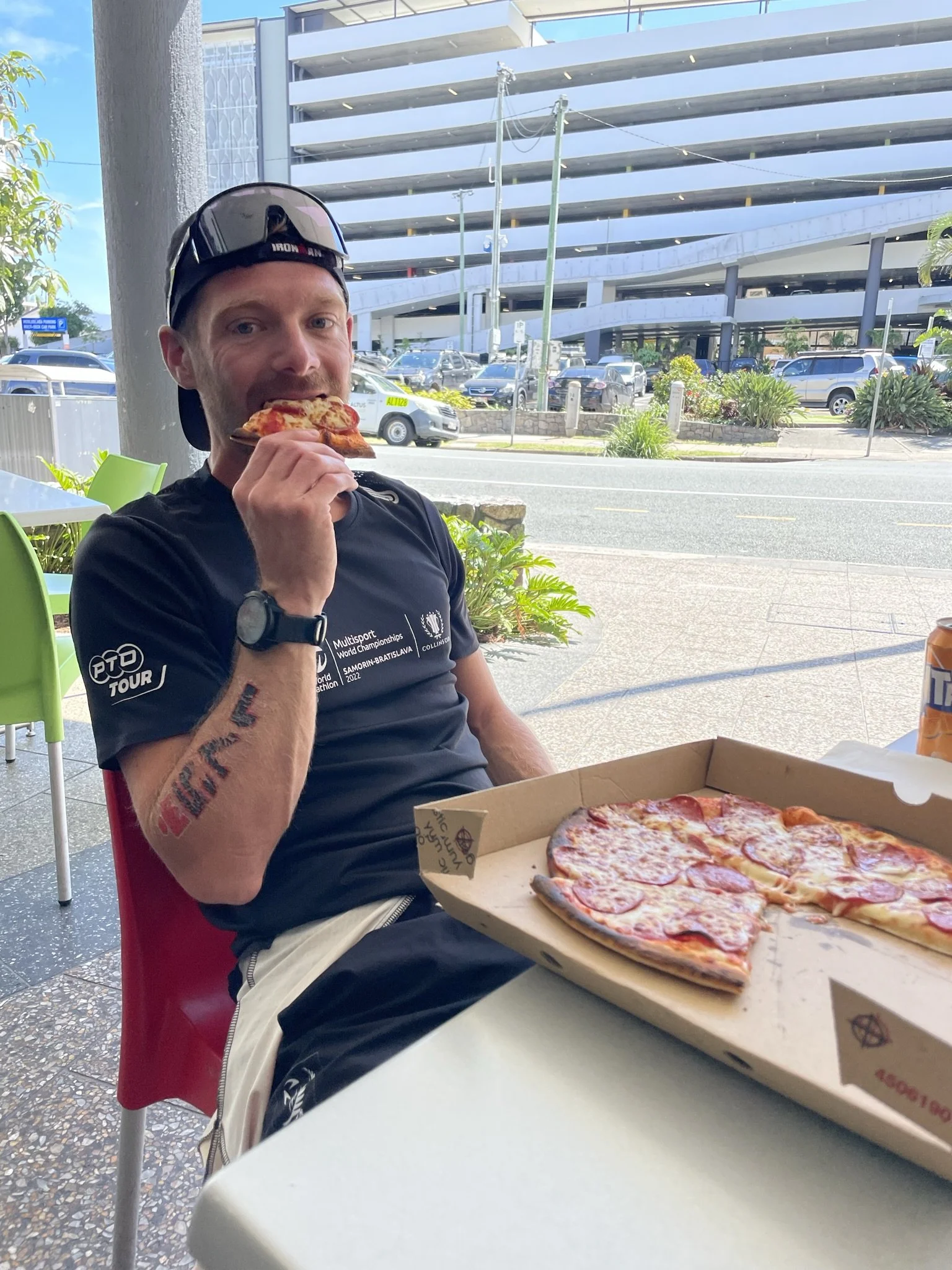Recovery Tips Every Triathlete Should Know
Train hard, recover harder: how to bounce back stronger after every session.
Triathletes are no strangers to long training weeks, early mornings, and pushing limits. But one of the biggest mistakes we see, especially from newer athletes, is treating recovery like an afterthought.
Here’s the truth: you don’t get fitter from training alone. You get fitter from how well you recover. If you’re constantly sore, sluggish, or stuck in a performance plateau, it’s time to focus as much on your recovery as you do your training.
At Hive Endurance, we believe that smart recovery is a secret weapon. Below are our top tips to help you bounce back faster, feel better, and perform at your best week in, week out.
Prioritise Sleep Like It's Part of Training
Sleep is the #1 recovery tool and it’s free. This is when your body does the bulk of its repair work.
Aim for 7–9 hours of quality sleep per night.
Keep a consistent bedtime routine (yes, even on weekends).
Limit screens in the hours before bed.
Limit caffeine consumption to as early in the day as possible.
Use your sports watch to keep track of your sleep metrics if it has the capaibility.
Coach’s tip: Sleep isn't lazy. It’s essential especially during big training blocks. If sleep wasn’t important, then evolution would’ve made it obsolete.
Refuel and Rehydrate Post-Workout
What you do in the 30–60 minutes after training matters. That’s your body’s prime window for recovery.
Refuel with carbs and protein, think chocolate milk, protein smoothies, or a proper meal.
Hydrate with water and electrolytes, especially after long or sweaty sessions.
Don’t wait hours to eat, get something in as soon as possible.
Coach’s tip: If you’re training multiple times a day, quick refuelling becomes even more important.
Use Active Recovery. Don’t Just Flop on the Couch
Not all recovery means doing nothing. Light activity can help reduce stiffness and promote circulation.
Go for a gentle walk, spin, or swim the day after a hard session.
Try yoga, foam rolling, or mobility work to loosen up.
Even a few minutes of stretching can make a big difference.
Coach’s tip: We often prescribe “easy” days, not “off” days, just enough movement to boost recovery without adding fatigue. This could be an easy ride or a hike.
Listen to Your Body (Even When Your Plan Says Otherwise)
Your training plan is a guide and it’s not a rulebook. Learning to listen to your body is one of the most valuable skills a triathlete can develop.
If you’re feeling unusually tired, irritable, or heavy-legged, it might be time to back off.
Don’t ignore persistent soreness or sleep disruptions, these are warning signs.
Skipping or swapping a workout is not a failure. It’s smart training.
Be open and honest with your coach so they can adapt your program.
Coach’s tip: A missed session now is better than a forced break from burnout later.
Make the Most of Recovery Tools But Don’t Rely on Them Alone
Massage guns, compression boots, ice baths; there are loads of recovery gadgets out there. They can help, but they’re not a cure-all.
Foam rollers, massage balls, and stretching help with tightness and mobility.
Compression wear or Normatec boots can promote circulation.
Cold plunges or contrast showers may reduce inflammation post-race or after intense training.
Coach’s tip: These tools should support your recovery not replace sleep, nutrition, and rest. It’s still very important to get the basics right first before using fancy gadgets.
Schedule Regular Rest Days
Rest days are part of the plan for a reason. Your body needs time to adapt and rebuild.
Resist the urge to “make up” missed sessions on rest days.
Use that time for mental rest too, read a book, see friends, or do something non-triathlon related.
Coach’s tip: Rest is productive. Trust the process and give your body what it needs.
Manage Stress Outside of Training
Stress is stress. Whether it’s from training, work, or life, it adds up in your system.
Try mindfulness, meditation, or journaling to unwind.
Keep your training fun; group sessions, new routes, or a good playlist can make a difference.
Make space for non-triathlon things that bring you joy.
Coach’s tip: Sometimes mental recovery is the key to physical progress.
Final Thoughts
You can’t train like a machine if you recover like a human. Prioritising recovery isn’t soft, it’s strategic. Whether you’re training for your first sprint triathlon or racing Ironman, the athletes who recover best are the ones who improve the most.
At Hive Endurance, we don’t just help you train hard and we help you recover smart so you can keep showing up stronger, week after week.
Want a training plan that builds in real recovery and fits your life? Let’s talk. We’ll help you train sustainably so you don’t just survive the season, you thrive.
